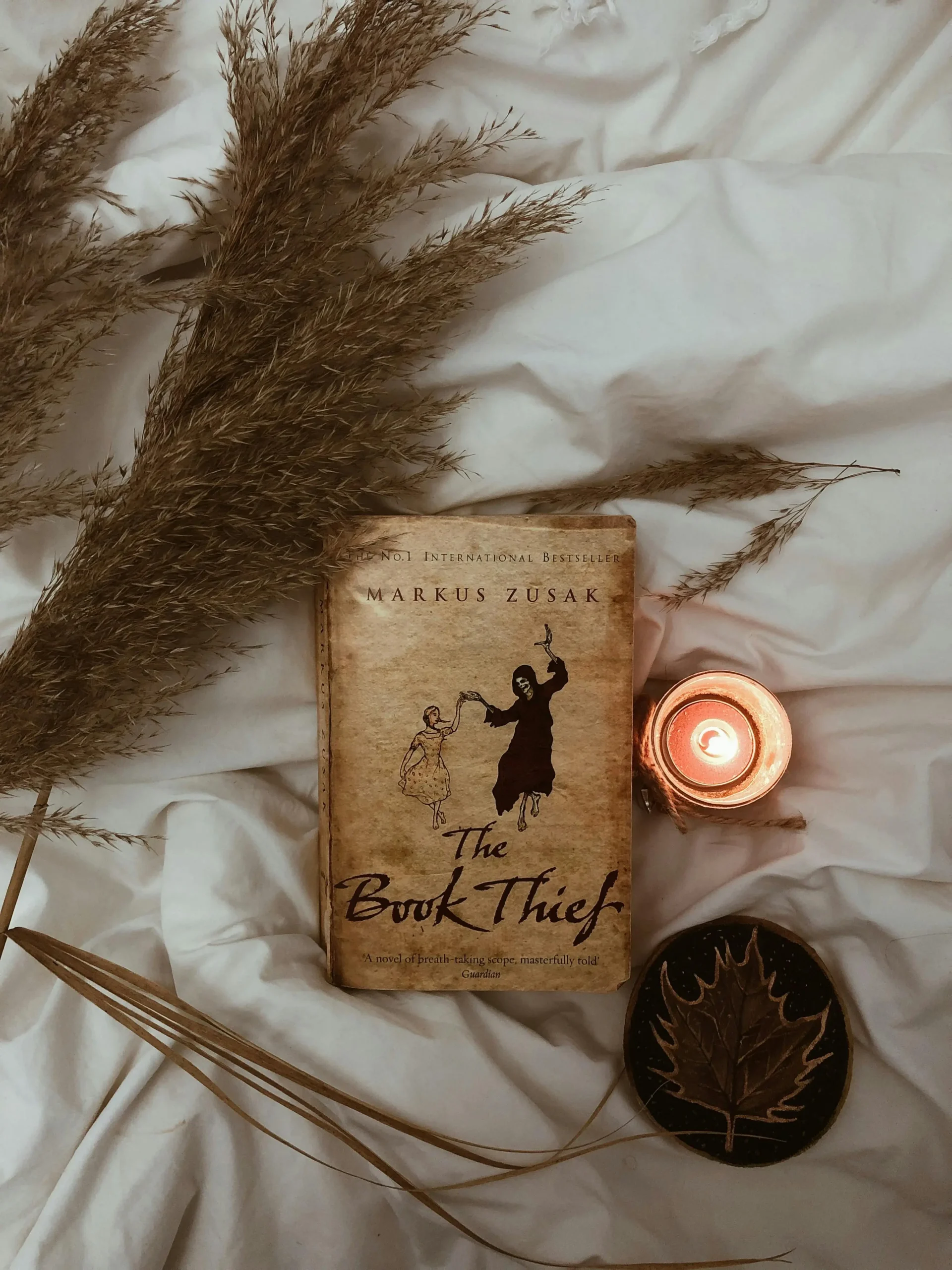Let’s face it—writing a book review can feel awkward at first. Maybe you’re staring at a blank page, unsure how to begin or what to say. That’s totally normal. A great way to get better at it is by checking out a solid book review example. Seeing how others structure their reviews, use tone, and bring in personal opinions can really help shape your own. That’s exactly what this article will walk you through: 11 real-world examples that show how to write a good book review—one that readers actually enjoy reading.
What Makes a Book Review Good?
So, what actually makes a book review good? We’ve all read those flat, generic reviews that say things like “It was nice” or “I liked it.” They don’t tell us much, and let’s be honest—no one really gets anything from them. A good book review example, on the other hand, has a few things that make it stand out. It’s not just about saying if you liked the book or not—it’s about saying why, in a way that feels helpful, real, and engaging. Here’s what you’ll usually find in a good review:
Clear structure (intro, summary, opinion, wrap-up)
A good review follows a simple flow: it starts with an intro, includes a short summary, shares your thoughts, then ends with a clear, thoughtful wrap-up.Balanced tone (honest but respectful)
Even if you didn’t enjoy the book, stay respectful. A balanced tone keeps things fair, avoids sounding harsh, and shows readers you’ve considered your view carefully.Strong opinions backed by reasons
Don’t just say you liked or disliked something—explain why. Backing up your thoughts helps readers understand your point and gives your review more credibility and meaning.No spoilers unless clearly marked
Avoid revealing major plot points. If you must include spoilers, give a clear warning first so readers can skip ahead without ruining the book’s surprises.Personal reactions and emotional takeaways
Talk about how the book made you feel. Sharing emotional reactions adds personality to your review and helps others connect with your perspective more easily.
| What Makes a Book Review Good? | Why It Helps |
|---|---|
| Clear structure (intro, summary, opinion, wrap-up) |
Gives your review a natural flow so readers can follow along without getting lost. Keeps things organized and easy to read. |
| Balanced tone (honest but respectful) |
Lets you express real thoughts without sounding harsh or fake. People trust honest reviews more than sugarcoated ones. |
| Strong opinions (backed by reasons) |
Explaining your “why” gives your review meaning. It’s not just your opinion—it’s your experience, and that’s what readers care about. |
| No spoilers (unless clearly marked) |
Keeps the reading experience safe for new readers. A good review shows respect for the story and its future fans. |
| Personal reactions (and emotional takeaways) |
Adds warmth and personality to your review. People connect with emotions more than plot summaries or ratings alone. |
1. Book Review Example: To Kill a Mockingbird
This classic review opens with a personal note on how the book hit home emotionally. The reader goes on to break down why Atticus Finch is such a compelling character, and how the themes of justice and race are still relevant today. What makes this review good? It’s honest, well-paced, and connects the reviewer’s thoughts directly to the events in the book.
Reading To Kill a Mockingbird felt like sitting down with an old friend who speaks truth in a quiet, powerful voice. From the very first page, I was drawn into the sleepy town of Maycomb, Alabama, and the world seen through young Scout Finch’s eyes. What really hit me was how timeless the story felt. Even though it was written decades ago, the themes of justice, prejudice, and moral courage still ring loud today.
Atticus Finch stole the show for me. He’s not flashy or dramatic—just solid, kind, and brave in a way that sticks with you. The way he defends Tom Robinson, knowing full well what he’s up against, shows real integrity. His quiet strength made me think about how we respond to injustice in our own lives.
The writing itself is smooth and heartfelt. Harper Lee’s style isn’t complicated, but that’s what makes it so easy to connect with. There’s a warmth in Scout’s voice, mixed with the innocence of childhood and the harsh truths she’s slowly beginning to understand.
I also loved the balance between serious themes and small-town charm. Moments with Dill, Jem, Boo Radley, and even the nosy neighbors give the story some breathing room. It never feels too heavy, even though the subject matter is deep.
If I had to sum up my thoughts in one line, I’d say this book teaches you how to stand up straight, even when it’s hard. It’s the kind of story that leaves a mark—quietly, but permanently. I’d absolutely recommend it, especially to anyone who hasn’t read it since high school. It hits differently as an adult.
Rating: ★★★★★ (5/5)
2. Book Review Example: The Midnight Library
Here, the reviewer avoids spoilers and focuses on how the book made them think about life choices. They mention how the story balances sadness with hope and tie their opinion back to the book’s main message. It’s short but powerful—and most importantly, it gives enough detail without retelling the plot.
Reading The Midnight Library was like staring into a mirror that reflects every decision you’ve ever second-guessed. Nora’s journey made me pause and consider all the lives I could have lived. The concept—a library that lets you try out alternate realities—is so simple, yet so mind-opening.
Matt Haig’s writing has this gentle sadness wrapped in hope. It’s never preachy, just honest. You feel Nora’s pain, but also the beauty in her rediscovery of life. What I appreciated most was how relatable her regrets were. We’ve all wondered, “What if I’d done that instead?” This book lets you sit with that question in a surprisingly comforting way.
The pacing is perfect—not too fast, not too slow. The transitions between lives are smooth, and the emotional weight builds steadily. It’s philosophical without being confusing. It feels more like a quiet walk through your own thoughts.
The ending won’t hit everyone the same, but for me, it felt right. It was grounded, sincere, and hopeful without tying everything up with a perfect bow. That made it even better.
If you’ve ever felt stuck, lost, or unsure about your past choices, this book meets you right where you are. It reminded me that being alive—really alive—means choosing to be present, flaws and all.
Rating: ★★★★★ (5/5)
3. Book Review Example: The Great Gatsby
This one does a great job blending summary with personal insight. The reviewer talks about Fitzgerald’s writing style and how the mood of the Roaring Twenties comes alive through his words. What stands out is how the reviewer backs their opinion with examples—mentioning specific scenes, quotes, and emotions triggered by the story.
Reading The Great Gatsby felt like stepping into a glittering world that’s gorgeous on the outside but hollow at its heart. Fitzgerald’s writing is smooth like jazz—elegant, lyrical, and full of longing. Through the eyes of Nick Carraway, you get to see the American Dream stretched too thin and dressed in gold.
Jay Gatsby is a character you admire and pity at the same time. He throws parties for ghosts, chasing a fantasy in the form of Daisy Buchanan. And even though you know it’s not going to end well, part of you still hopes it will. That hope—that obsession—is what makes Gatsby unforgettable.
The symbolism hits hard without being too obvious. The green light, the eyes of Dr. T. J. Eckleburg, the valley of ashes—it all adds this dreamy heaviness to the story. You can feel the weight of it, even in the prettiest scenes.
Fitzgerald doesn’t waste a single word. Everything is polished, every image sharp. Even if you’re not into love stories, there’s something magnetic about the way this book paints beauty, greed, and heartbreak.
It’s not a long read, but it lingers. You’ll finish it, sit back, and probably question a few things about your own ambitions. And honestly? That’s what makes it worth reading again and again.
Rating: ★★★★★ (5/5)
4. Book Review Example: Atomic Habits
In this nonfiction review, the writer clearly outlines what the book covers but also includes their favorite tip from the author. It’s not just a recap—it’s a conversation. The reader gets value from the review alone, even if they haven’t read the book yet. That’s what you want in a solid book review example.
Reading Atomic Habits was like being handed the missing instructions for getting your life together—without feeling overwhelmed. James Clear breaks down behavior change in a way that actually makes sense and feels doable.
What stood out to me is how small actions build up. You don’t need to make giant leaps. Just show up, every day, in tiny ways. The “1% better” idea changed how I look at progress. It’s no longer about motivation—it’s about systems.
The book is packed with examples and studies, but it doesn’t read like a textbook. Clear’s writing is smooth, casual, and clear—pun intended. You feel like you’re talking to someone who genuinely wants to help.
My favorite takeaway was habit stacking. I started attaching new habits to things I already do—like stretching while my coffee brews. It worked better than I expected. And that’s just one tip of many.
This isn’t just for people trying to lose weight or start a morning routine. It’s for anyone who wants real, lasting change. If your habits have been holding you back, this book shows you how to build better ones.
Rating: ★★★★★ (5/5)

5. Book Review Example: The Book Thief
This one is written like a letter to the author, which makes it stand out. It’s heartfelt and honest. The review focuses more on how the book made the reader feel than a play-by-play of the plot. Reviews like this remind us that feelings matter as much as facts.
Reading The Book Thief was like listening to poetry wrapped in sorrow. The narrator is Death, but somehow, the book is full of life. Liesel’s story during Nazi Germany broke my heart and then quietly pieced it back together.
Markus Zusak’s writing style is different—fragmented, colorful, almost musical. It took a few pages to adjust, but once I did, I was hooked. It’s raw and poetic without ever feeling forced. There’s so much beauty in the smallest lines.
The relationships were what stayed with me. Liesel and Papa, Max in the basement, Rudy’s golden hair—all of it felt real and unforgettable. Even the side characters carried emotional weight.
This book made me cry more than once. It’s not just the story, but how it’s told—with honesty, warmth, and a quiet kind of bravery. It reminded me how words can save us, even in the darkest times.
It’s heavy, yes, but worth every page. And somehow, even with the sadness, there’s light in it. A story that will stay in your bones long after you finish it.
Rating: ★★★★★ (5/5)
6. Book Review Example: Educated by Tara Westover
The reviewer begins with a personal connection—growing up in a strict household—before diving into what they loved about Westover’s story. There’s a rawness to the review, and that vulnerability pulls you in. You can tell it’s written by someone who cares, and that authenticity makes it great.
Reading Educated was like standing at the edge of a cliff—terrified but unable to look away. Tara Westover’s memoir is powerful, painful, and honestly one of the most gripping stories I’ve ever read.
Her upbringing was nothing like mine, but the struggle for self-identity and freedom? That felt universal. She paints a vivid picture of life off the grid, where education was a sin and medical help was avoided at all costs.
What hit me hardest was the emotional tug-of-war between love and survival. You want her to escape, but you also feel the pull of family. That conflict runs through every page, and it’s so real.
Westover’s writing is raw and smart. It doesn’t beg for pity, just understanding. And the way she reflects on memory and truth adds so much depth to her story. She questions herself in a way that makes you reflect too.
By the time I finished, I felt like I’d lived someone else’s life and come back changed. It’s more than just an inspiring story—it’s a hard, honest look at what it means to break free.
Rating: ★★★★★ (5/5)
7. Book Review Example: 1984 by George Orwell
This review takes a bold stance, calling the book “more relevant now than ever.” It explains how the dystopian themes feel eerily close to real life. Then it lists what the reader liked and didn’t like, making it one of those balanced reviews that helps others decide if the book is for them.
Reading 1984 felt like walking through a cold, gray fog with your eyes wide open. It’s unsettling from the very first page, and that discomfort never really lets up. Orwell builds a world that’s terrifying not because it’s impossible—but because it feels dangerously close to reality.
Big Brother, thoughtcrime, doublethink—it all sounds extreme until you realize how many parallels exist today. That’s what got under my skin. The constant surveillance, the rewriting of truth, the weaponizing of language—it all hits hard in the current digital world.
What I appreciated most was how Orwell doesn’t sugarcoat anything. The writing is sharp, clear, and brutally honest. Winston’s journey isn’t heroic in a traditional sense, but it’s powerful. You root for him, even when the odds are hopeless.
That said, this isn’t a feel-good book. It’s heavy, slow in parts, and emotionally exhausting. But it’s also important. It forces you to think—really think—about freedom, control, and the power of information.
It’s not just a classic for history class. It’s a warning, wrapped in fiction, delivered with precision. If you want a book that will stay with you—and maybe even haunt you—this is it.
Rating: ★★★★★ (5/5)
8. Book Review Example: The Alchemist
A reviewer here shares how the book changed their perspective on goals and life purpose. It’s personal but not preachy. They also give the book a clear rating and explain their reasons without using vague phrases. That kind of honesty is what makes this a strong book review example.
Reading The Alchemist felt like listening to a story told by a wise friend around a campfire. It’s a short book, but it carries a lot of emotional weight and quiet lessons.
The story follows Santiago, a shepherd boy searching for his “Personal Legend.” That phrase might sound mystical at first, but the meaning becomes clear as you go—it’s really about listening to your heart and not being afraid of the unknown.
What stood out most was how simple the writing is, yet how much it makes you reflect. It doesn’t try to sound profound—it just is. You’ll find yourself stopping mid-page, not because the story is confusing, but because you’re busy thinking about your own path.
There’s a spiritual tone to the book, but it’s not tied to any religion. It speaks to something inside everyone who’s ever had a dream or doubted themselves. That’s what makes it feel so personal.
This isn’t a book for people looking for action or complex plot twists. It’s quiet, thoughtful, and more about what’s inside the journey than what happens during it. I’ll probably reread it every few years just to check in with myself.
Rating: ★★★★☆ (4.5/5)

9. Book Review Example: Where the Crawdads Sing
This review puts focus on the setting. The writer says the marsh feels like a character itself. They describe the writing style as “gentle and poetic” and list a few favorite quotes. Using specific examples like this makes the review feel more trustworthy—and useful.
Reading Where the Crawdads Sing felt like stepping into a painting—warm, vivid, and quietly full of life. The marsh setting isn’t just a backdrop here; it’s alive, breathing, and woven into the very soul of the story.
Kya, the “Marsh Girl,” is one of the most unique protagonists I’ve come across in a while. She’s wild, resilient, and painfully isolated. You don’t just read about her—you feel what she feels. That loneliness, that yearning to belong—it’s powerful.
Delia Owens writes with the heart of a poet and the eye of a scientist. Her descriptions of nature are so rich that you can practically smell the salt air and hear the birds calling across the water.
The plot itself is a mix of coming-of-age story and murder mystery, with both timelines pulling you in. I found myself reading slowly—not because I was bored, but because I didn’t want it to end.
It’s one of those books that lingers. I still think about the last few pages, about what it means to survive and be truly seen. It’s a story of wildness, wisdom, and quiet revenge.
Rating: ★★★★★ (5/5)
10. Book Review Example: A Man Called Ove
The reviewer opens with humor, calling the main character “grumpy but lovable.” They describe how the book took them on an emotional rollercoaster—laughing one minute, tearing up the next. It’s a short review, but packed with personality and heart, which keeps the reader engaged.
Reading A Man Called Ove was like peeling an onion—layer by layer, you get closer to the heart. At first, Ove seems like your classic grumpy old man. He hates noise, routines, and just about everything else. But stick with him, and you’ll find a story that’s unexpectedly beautiful.
Fredrik Backman does something amazing here: he turns the ordinary into something unforgettable. The humor sneaks up on you, sharp and dry. But just when you’re laughing, a gut-punch of emotion hits you, and suddenly you’re wiping tears.
The side characters bring chaos and color into Ove’s gray world. A pregnant neighbor, a clumsy cat, an old enemy turned friend—they all crack open his carefully built walls. And each one adds something meaningful.
What I loved most was how the book treats grief and love. It never gets too sappy or too dark. It shows that healing doesn’t come in big, loud moments—but in the little things, like fixing a bike or making coffee.
This isn’t just a story about loss. It’s about connection, second chances, and the quiet impact we have on each other’s lives. It made me laugh out loud and cry in the same chapter. That’s rare.
Rating: ★★★★★ (5/5)
11. Book Review Example: Becoming by Michelle Obama
Here, the review is structured in sections—writing style, pacing, and impact. Each section is clear and focused. It also ends with a takeaway: “This book reminded me that every voice matters.” Reviews like this one are helpful because they guide the reader through different aspects of the book without overwhelming them.
Reading Becoming felt like sitting down with Michelle Obama for a long, honest conversation. Her voice is calm, strong, and refreshingly open. You don’t have to follow politics to connect with her story—this is about identity, growth, and grit.
She starts with her childhood in Chicago, and you can almost hear the sounds of her neighborhood as she describes it. Her early years are filled with lessons that shaped her into someone determined to make a difference.
What makes this memoir special is how it balances big historical moments with personal ones. Her time in the White House is fascinating, but it’s the little glimpses into her marriage, motherhood, and self-doubt that stick with you most.
The writing is graceful and genuine. Nothing feels ghostwritten or stiff. Every chapter has purpose, and you can feel her reflecting honestly—even in the uncomfortable parts.
It reminded me that becoming isn’t about perfection—it’s about progress. This book is a quiet nudge to anyone wondering if their story matters. Michelle Obama proves it does—and so does yours.
Rating: ★★★★★ (5/5)
Tips for Writing Your Own Good Book Review
Writing a review that actually helps people takes more than just sharing if you liked the book or not. It’s about being thoughtful, honest, and a little personal. Now that you’ve seen 11 types of book review example, here are a few simple tips that can help your own review feel more helpful and more real.
1. Keep it real
Say exactly what you think. Don’t sugarcoat things to sound polite, and don’t exaggerate to please others. The best reviews come from people who speak honestly, even if their opinion is unpopular.
2. Be specific
Instead of saying something general like “the book was interesting,” explain what parts stood out. Talk about a character that stayed with you or a moment that made you stop and think. Specific details make your review more believable and useful.
3. Don’t retell the whole story
A short summary is fine, but try not to rewrite the book in your review. Readers want your thoughts and reactions—not the entire plot. Focus on what the book made you feel or think instead.
4. Add your personal touch
Let your personality show. Did the story remind you of something from your life? Did it make you cry, laugh, or rethink something? A personal reaction makes your review feel human and memorable.
5. Use ratings carefully
Stars are helpful—but only if you explain them. What makes a five-star book for you? What took away that one point? Make your rating meaningful so people reading your review know what it actually means.
Common Mistakes to Avoid in a Book Review
Even with good intentions, some reviews just don’t land. Here are a few things that can ruin even the best review:
Spoiling major plot twists without any warning
Being too vague with lines like “It was okay” or “Pretty good”
Writing an essay instead of a conversational review
Being overly harsh or too soft without explaining why
Ignoring basic grammar and spelling—it still counts!
A good book review example helps readers decide what to read and shows them why it meant something to you. That’s what keeps reviews useful and engaging. Even if your writing isn’t perfect, your honest opinion can help someone find their next favorite read.
Writing reviews is really just sharing your reading experience. Think of it like texting a friend about a book you just finished—keep it real, thoughtful, and simple. The more you practice, the better you’ll get. Who knows? Your next review might be the one someone else uses as their favorite example.




